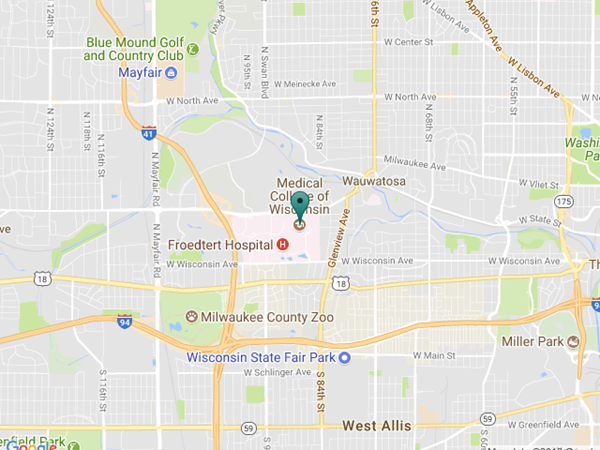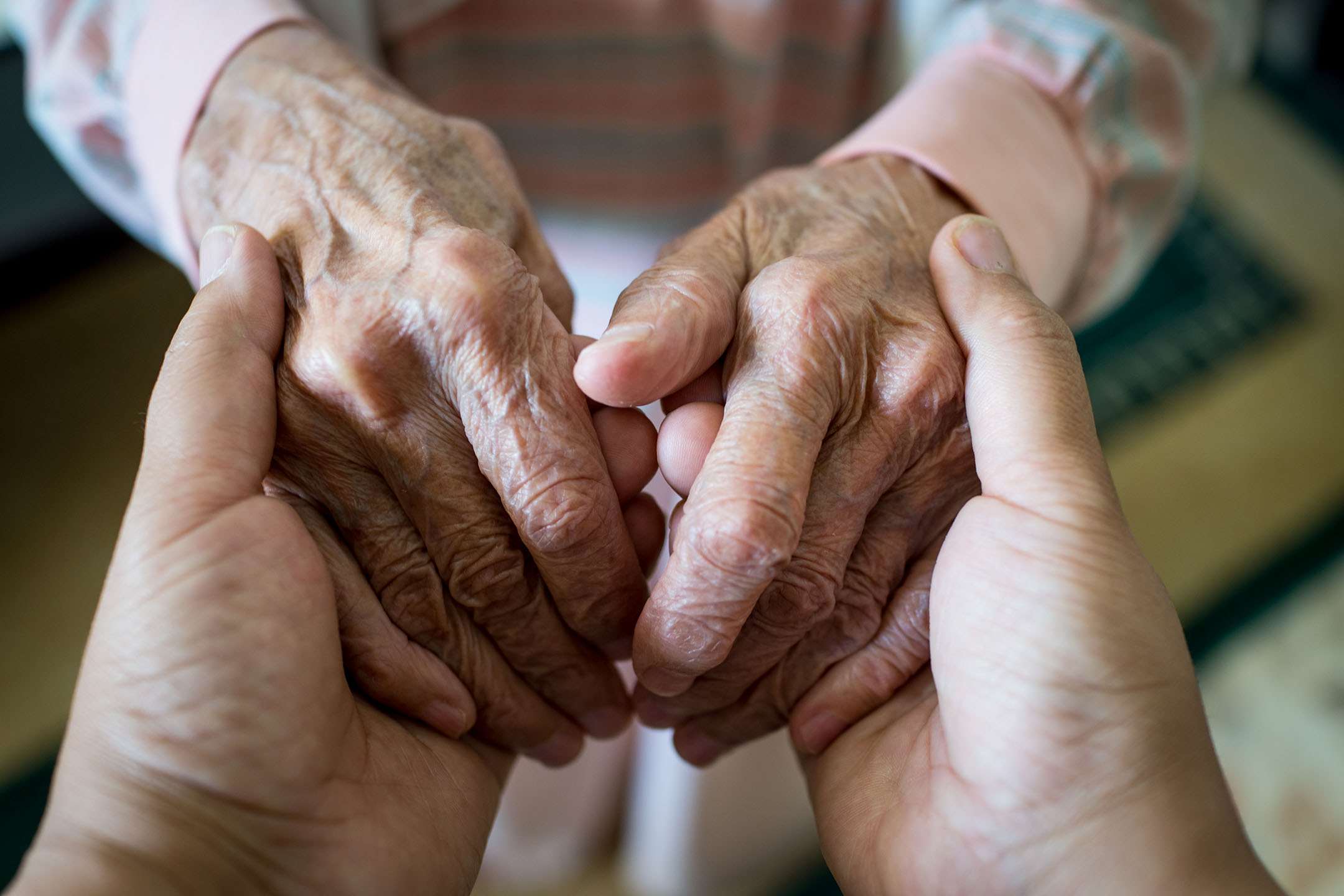Developing Resilience to Ease Anguish in Mourning (DREAM)
The goal of our transdisciplinary program is to:
- Determine psychosocial and neurobiological factors (or biological markers) that can complicate acute grief following the loss of a loved one
- Advance our neurobiological understanding of prolonged grief disorder and bereavement-related depression
- Identify interventions that may prevent the development of grief-related complications
- Identify treatments that can improve health outcomes in those who experience prolonged grief disorder and bereavement-related depression
- Share with the community resources and information regarding bereavement and its consequences
- Build academic-community partnerships in Wisconsin and beyond to improve care for the bereaved
- Educate and train both health professionals and lay public on (a) acute and integrated grief; (b) diagnosing and treating prolonged grief disorder and other grief-related complications; and (c) strategies to prevent grief-related complications.
Program Director's Message | Joseph S. Goveas, MD
Welcome to the MCW DREAM Program
Experiencing the death of a loved one is inevitable, and grief is a natural response. Most acutely grieving adults are resilient and recover their pre-loss functioning within a year. However, a significant minority develop complications such as prolonged grief disorder (or complicated grief) and bereavement-related depression. The development of these complications is especially high following the death of a life partner or a child. The public health consequences of prolonged grief disorder and bereavement-related depression are enormous, and include declines in physical health and cognition, poor quality of life, functional impairment, premature mortality, and an increased risk of suicide.
Despite the magnitude of this problem, we cannot distinguish those grieving individuals who are resilient and will successfully transition to integrated grief from those who are prone to develop prolonged grief disorder or bereavement-related depression. Thus, it is not known who among the grieving individuals warrants early intervention, what treatments are most effective, and when to initiate treatment.
DREAM is a transdisciplinary program that examines factors that can complicate acute grief following the loss of a loved one, with the goal of identifying interventions that prevent grief-related complications. We also aim to identify treatments that can improve long-term health outcomes in those experiencing prolonged grief disorder and bereavement-related depression.

Professor, Psychiatry and Behavioral Medicine
Professor, Institute for Health & Humanity
Vice-Chair and Director, Geriatric Psychiatry
jgoveas@mcw.edu | (414) 955-8970
Current Research Studies
Past Research Studies
Research Study Participation
Are you interested in participating in the Emotion Regulation in Complicated Grief Study?
Complete the survey or contact Stacy Claesges, Clinical Research Manager, with questions.
sclaesge@mcw.edu | (414) 955-8970
Froedtert & the Medical College of Wisconsin Grief Clinic
The Grief Clinic at the Froedtert & MCW Tosa Behavioral Health Center serves adults who have experienced the death of a loved one. This clinic focuses on improving the health of bereaved individuals.
The clinic has:
- Therapists who can assist individuals during their acute grieving process.
- Therapists specifically trained in complicated grief therapy (CGT), and
- Psychiatrists who treat grief-related complications, including but not limited to prolonged grief disorder; bereavement-related depression and anxiety; and post-traumatic stress disorder.
To schedule an appointment:
Call (414) 955-8952
In The News
Flying Solo: Evolving the Thinking on Women Who Age Alone
Zosia Bielski
The Globe and Mail | October 6, 2023
The Pain of Grief
Charlotte Huff
Cancer Today | June 22, 2022
Pandemic Takes Toll on Those Who Grieve
Terry D'arrigo
Psychiatric News, American Psychiatric Association | February 4, 2021
Mental Health: The Emotional Toll of the Pandemic, How Older Adults Are Grieving
Kathy Hardy
Today’s Geriatric Medicine (Vol. 14 No. 1 P. 26)
How COVID-19 Has Made The Grieving Process So Much Harder
WUWM 89.7
Milwaukee’s NPR Lake Effect's Joy Powers talks with Dr. Joseph Goveas about how COVID-19 has made coping with the loss of a loved one more difficult.
Medical College of Wisconsin to Study Brain Changes Following Loss of Loved One to Prevent Grief-Related Complications
Medical College of Wisconsin | August 7, 2020
Urban Milwaukee
Grief over covid-19 deaths may be unusually severe and long-lasting
Alice Klein
NewScientist | July 8, 2020
COVID-19 can trigger complicated grief among those who lost loved ones, experts warn
John Diente
International Business Times | July 10, 2020
COVID-19 May Lead to Uptick in Cases of Prolonged Grief Disorder
Psychiatric News Alert | July 1, 2020
Milwaukee study to focus on growing public health issue of late-life depression
Milwaukee Independent | November 12, 2017
Study finds that education, good health, and positive emotional wellbeing contribute to improved memory health in older women
Medical College of Wisconsin
Urban Milwaukee | February 29, 2016
Other Resources

Recent Publications
-
Accelerated brain aging in prolonged grief disorder of later life: Influence of comorbid depression.
(Hwang G, Blair NO, Claesges SA, Reynolds CF, Davatzikos C, Goveas JS.) J Affect Disord. 2026 Jun 01;402:121387 PMID: 41690630 SCOPUS ID: 2-s2.0-105030017096 02/15/2026
-
(Al-Delaimy WK, Bruno W, Shadyab A, Saquib N N, Goveas JS.) Menopause. 2026 Jan 27 PMID: 41589860 01/27/2026
-
(Goveas JS, Hwang G, Blair NP, Stein EA, Reynolds CF.) Neuropsychopharmacology. 2026 Jan 23 PMID: 41577994 SCOPUS ID: 2-s2.0-105028578296 01/24/2026
-
(Goveas JS, Hwang G, McAuliffe TL, Blair NP, Webber A, Claesges SA, Murphy LM, Chandler K, Reynolds CF, Hainsworth KR.) Sci Rep. 2025 Dec 24;15(1):44604 PMID: 41444366 PMCID: PMC12738772 SCOPUS ID: 2-s2.0-105025806898 12/25/2025
-
(Hwang G, Blair NP, Ward BD, McAuliffe TL, Claesges SA, Webber AR, Hainsworth KR, Wang Y, Reynolds CF, Stein EA, Goveas JS.) Biol Psychiatry Cogn Neurosci Neuroimaging. 2025 Dec;10(12):1284-1293 PMID: 39725082 PMCID: PMC12185774 SCOPUS ID: 2-s2.0-105000420540 12/27/2024
-
(Blair NP, Hwang G, Ward BD, Claesges SA, Webber AR, Hainsworth KR, Wang Y, Reynolds CF 3rd, Stein EA, Goveas JS.) Biol Psychiatry Cogn Neurosci Neuroimaging. 2025 Aug 05 PMID: 40769298 PMCID: PMC12346161 SCOPUS ID: 2-s2.0-105020753594 08/07/2025
-
(Goveas JS.) Am J Geriatr Psychiatry. 2025 Jun;33(6):624-627 PMID: 40023707 SCOPUS ID: 2-s2.0-85219073346 03/03/2025
-
(Singer J, Goveas JS, Elliott L, Parmar H, Mary-Frances O.) Psychiatry Res Neuroimaging. 2024 Dec;345:111902 PMID: 39278199 SCOPUS ID: 2-s2.0-85203819568 09/16/2024
-
Neuropsychological correlates of early grief in bereaved older adults.
(Hoffmann BM, Blair NP, McAuliffe TL, Hwang G, Larson E, Claesges SA, Webber A, Reynolds CF 3rd, Goveas JS.) Int Psychogeriatr. 2024 Nov;36(11):1064-1069 PMID: 38462965 PMCID: PMC11387951 SCOPUS ID: 2-s2.0-85187712212 03/11/2024
-
20-year depressive symptoms, dementia, and structural neuropathology in older women.
(Petkus AJ, Wang X, Younan D, Salminen LE, Resnick SM, Rapp SR, Espeland MA, Gatz M, Widaman KF, Casanova R, Chui H, Barnard RT, Gaussoin SA, Goveas JS, Hayden KM, Henderson VW, Sachs BC, Saldana S, Shadyab AH, Shumaker SA, Chen JC.) Alzheimers Dement. 2024 May;20(5):3472-3484 PMID: 38591250 PMCID: PMC11095467 SCOPUS ID: 2-s2.0-85190406564 04/09/2024
-
Prolonged Grief Disorder: Unveiling Neurobiological Mechanisms for a Shared Path Forward.
(Goveas JS, O'Connor MF.) Am J Geriatr Psychiatry. 2024 May;32(5):535-538 PMID: 38176964 PMCID: PMC11809778 SCOPUS ID: 2-s2.0-85182365610 01/05/2024
-
Loneliness, social isolation, and cardiovascular disease among nonveteran and Veteran women.
(Yarish NM, Posis AIB, Nguyen S, Weitlauf J, Bellettiere J, Saquib N, Richey PA, Allison M, Kroenke C, Goveas JS, Coday M, LaCroix AZ.) J Women Aging. 2024;36(6):492-503 PMID: 38659158 PMCID: PMC11499287 SCOPUS ID: 2-s2.0-85191247280 04/25/2024
-
(Goveas JS, Simon NM, Shear MK.) Tasmans Psychiatry Fifth Edition. 1 January 2024:4771-4789 SCOPUS ID: 2-s2.0-105005236529 01/01/2024
-
(Goveas JS.) Am J Geriatr Psychiatry. 2023 Dec;31(12):1058-1061 PMID: 37543462 PMCID: PMC10703544 SCOPUS ID: 2-s2.0-85166923505 08/06/2023
-
(Blair NP, Cohen AD, Ward BD, Claesges SA, Agarwal M, Wang Y, Reynolds CF 3rd, Goveas JS.) J Psychiatr Res. 2022 Dec;156:252-260 PMID: 36272343 PMCID: PMC11826082 SCOPUS ID: 2-s2.0-85140273934 10/23/2022
Acknowledgements
- The National Institute of Mental Health (NIH-NIMH)
- Advancing a Healthier Wisconsin Endowment (AHW)
- Costigan Family Foundation
- Clinical & Translational Science Institute (CTSI) Adult Translational Research Unit
- MCW Center for Imaging Research (CIR)
- MCW Department of Psychiatry and Behavioral Medicine
- MCW Neuroscience Research Center
Contact Us
Psychiatry and Behavioral Medicine
Research Park Center
10000 W. Innovation Dr., 3rd Floor
Milwaukee, WI 53226
(414) 955-8970
Program Director
Joseph S. Goveas, MD
Professor, Psychiatry and Behavioral Medicine
Professor, Institute for Health & Humanity
Director, Geriatric Psychiatry





